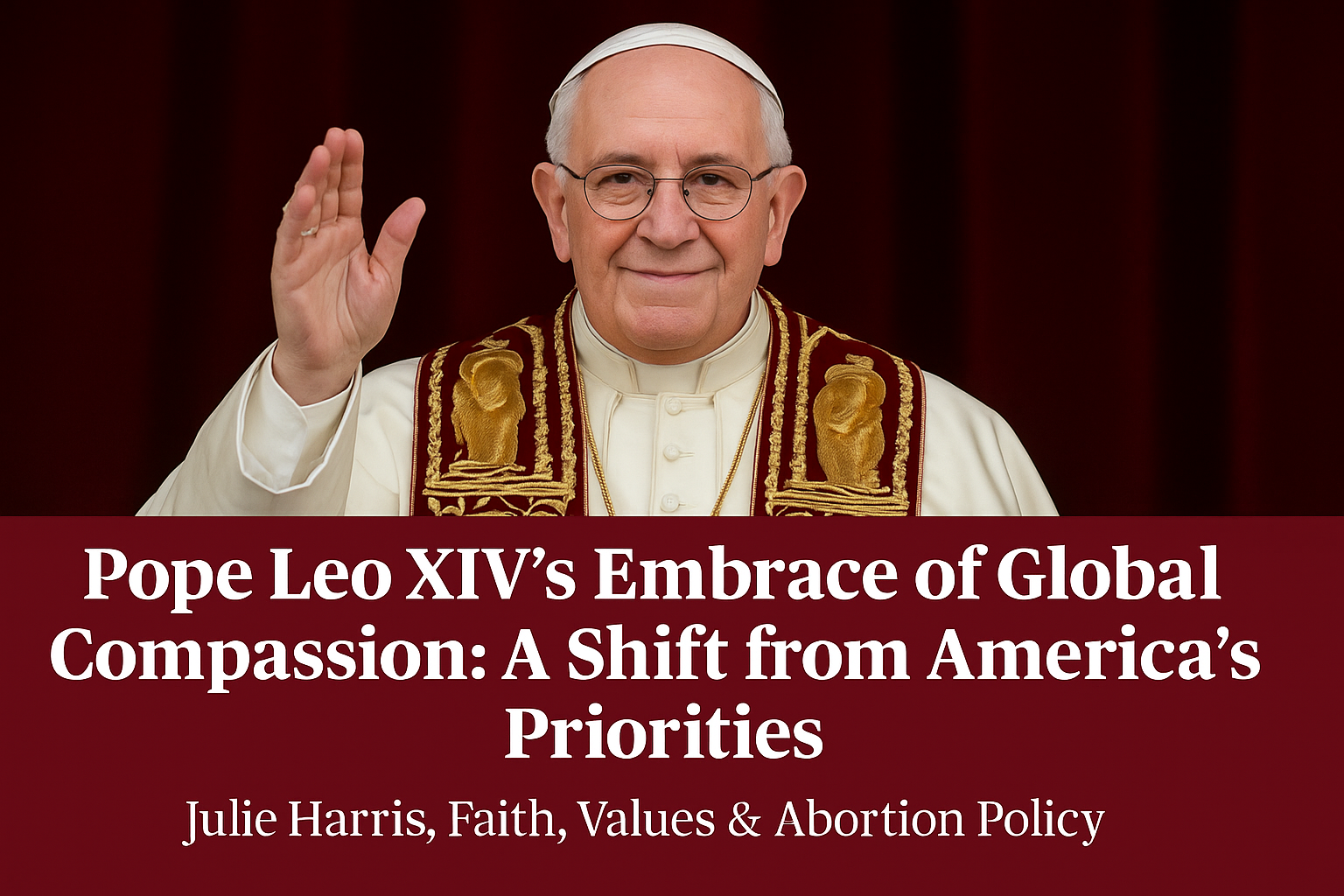In a moment celebrated by the global Catholic community, Cardinal Robert Prevost of Chicago has been named the new pope—taking the name Pope Leo XIV. With white smoke rising above the Vatican and bells ringing out across Rome, the announcement was met with cheers from the faithful. But beyond the emotion and pageantry lies a quiet shift that could set the tone for future tensions between the Vatican’s moral vision and America’s policy direction under President Trump.
Pope Leo XIV’s background is well-documented. A product of Midwest humility and South American missionary work, he spent years tending to impoverished communities in Peru before rising through the Vatican’s hierarchy. His first remarks as pontiff focused heavily on compassion, mercy, and what he called “Christ’s call to lift up the forgotten.” In his own words: “Let us go forward without fear, hand in hand, as disciples of Christ. The world needs His light. Humanity needs His light.”
It’s a message rooted firmly in Christian theology. And yet, it comes at a time when many nations—most notably the United States—are working to regain control of their own borders, reinforce national sovereignty, and address homegrown needs first. President Trump’s administration has made clear that its priority is to protect the American worker, defend traditional values, and reduce dependency on foreign systems and agendas. Pope Leo XIV’s call to “welcome the stranger” and “redistribute abundance” suggests a worldview more closely aligned with the principles of international aid networks than national interest.
For those paying attention, this marks a familiar pattern. Like his predecessor Pope Francis, Leo XIV appears poised to expand the Church’s role in global moral leadership—particularly in areas like climate justice, refugee aid, and poverty relief. Under his guidance, early reports indicate the Vatican may deepen its involvement in cross-border humanitarian work, reassign clergy to high-migration zones, and push dioceses in developed countries to give more of their resources to international causes.
These are not bad ideas, of course. Helping others is foundational to Christian life. But this vision naturally places more weight on the needs of the global poor than on the struggling middle class in the American heartland. Where President Trump has prioritized re-shoring jobs, strengthening border security, and reducing foreign aid, Pope Leo XIV seems to be emphasizing the very inverse—directing spiritual and material resources outward, toward what he called “the hidden corners of humanity.”
That phrase may sound poetic, but it’s also revealing. The Catholic Church, under this new leadership, seems prepared to stretch itself further than ever—to every margin, every border, every place where “systems of man have failed,” as the pope put it. In practice, this likely means more Vatican advocacy in immigration policy, more outspoken support for universal healthcare models, and more calls for the West to “do more” even as working families here tighten their belts.
For conservative Catholics in the U.S., this creates a quiet tension. Most will continue to respect the pope’s role as spiritual leader. But they may find themselves increasingly uncomfortable with how the Church’s expanding humanitarian focus intersects with politics. When charity starts to resemble policy, lines blur. What begins as compassion can quickly become prescription.
Of course, none of this is new. The Church has always operated across borders. But what’s different now is the timing—and the reach. Pope Leo XIV takes the throne of St. Peter at a moment when many Americans are pulling back from globalization. His very first speech calls for the opposite. It was not a nod to national integrity, but a sermon to the world.
Some see this as a needed corrective. Others might call it tone-deaf.
To be fair, Pope Leo XIV is not a politician. He is, by all accounts, a deeply sincere man shaped by faith and service. His devotion to the underserved is not in question. What remains to be seen is how that vision will translate as the Church inevitably deepens its involvement in matters that touch political and national life. Already, there is quiet concern among policy watchers in Washington that the pope’s call for “radical hospitality” could influence diplomatic discussions on refugee quotas and climate aid.
And like any global institution, the Church will need structure to support this vision. Committees, task forces, new outreach offices—all staffed, all funded. What begins as a moral movement often grows into a bureaucracy, as history reminds us. Some may applaud this. Others may see yet another system poised to expand without ever asking who pays for it, or how effective it really is.
Still, none of this is framed as opposition. The Vatican does not criticize. It simply calls. And in doing so, it reminds the world that morality is not always convenient—and that compassion doesn’t stop at the border, even when policy does.
For now, Americans are left to navigate the contrast: a pope who looks outward with open arms, and a president who looks inward with firm resolve. Both claim to serve the vulnerable. Both are acting in good faith. But only one is elected by a nation. Time to choose sides.
Julie Harris covers Faith, Values & Abortion Policy for Just Right News. Raised in a close-knit rural community with deep Christian roots, Julie brings a grounded, common-sense voice to the moral issues shaping America. Her reporting focuses on how faith and tradition continue to guide today’s most important policies, especially in a time when the role of religion in public life is evolving fast.

